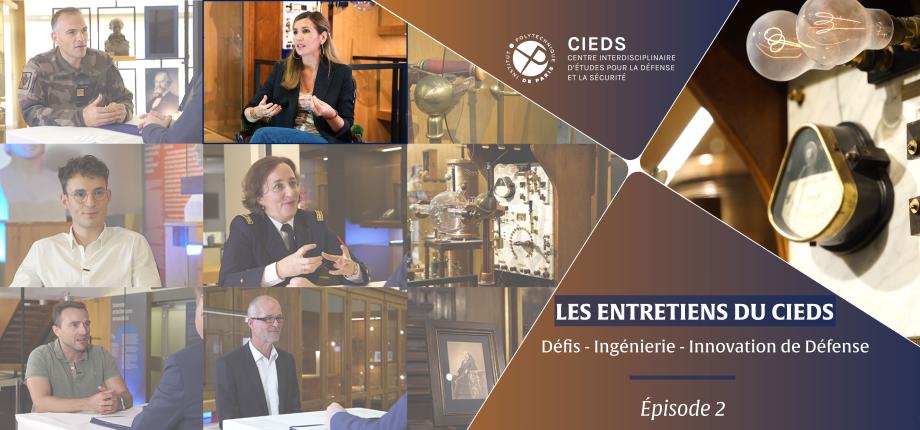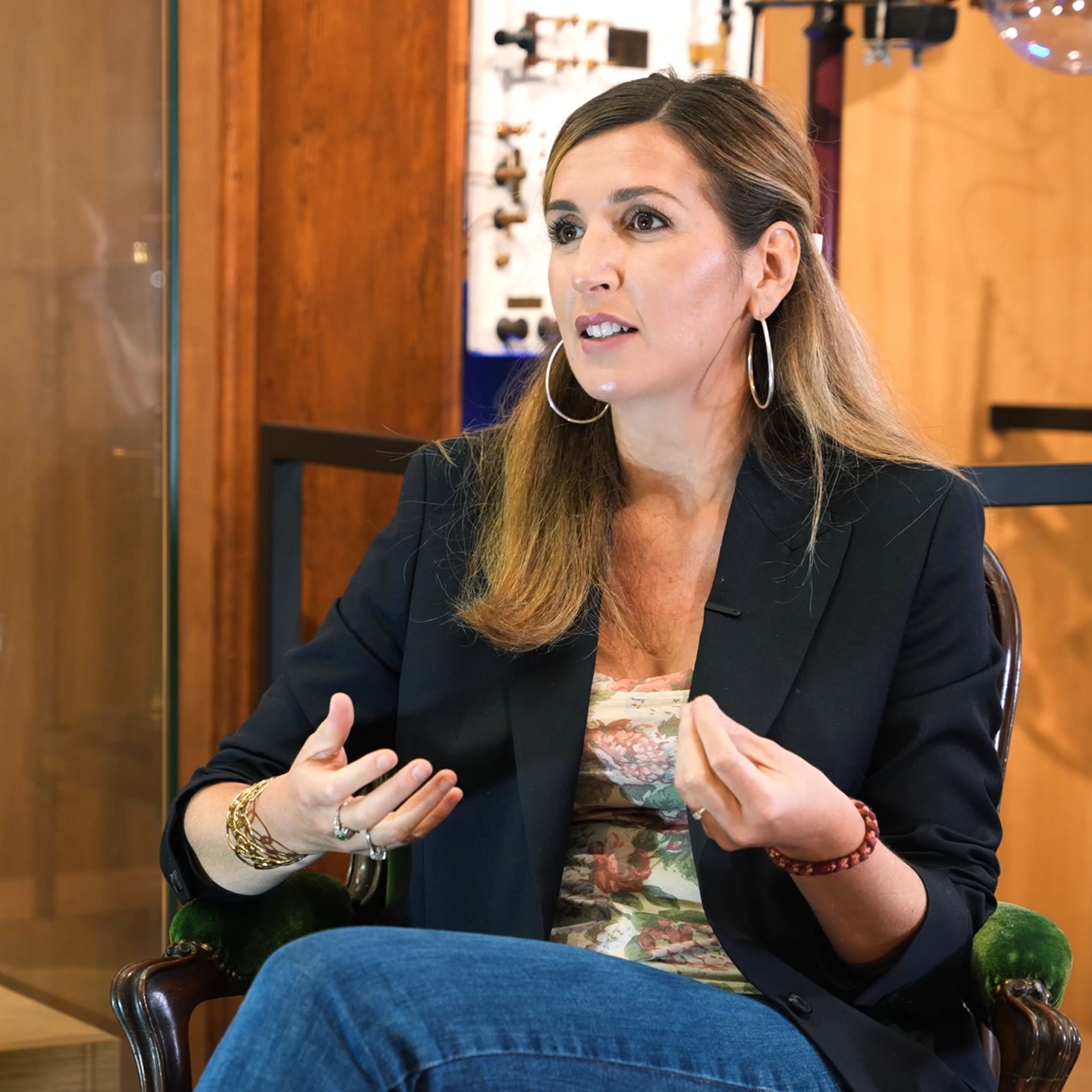Les entretiens du CIEDS: Meet Manon Vermenouze from Shark Robotics in Episode 2

About the speaker

Manon Vermenouze
Director of External Relations
Shark Robotics
‘Our main aim at Shark Robotics is to save lives through technology, to enable humans to come into contact with danger through robots and to be protected.’
Graduated in economics and political sciences, Manon Vermenouze was previously an economics journalist in Paris for the written press and television. She is currently Head of Public Affairs and Communications at Shark Robotics. She is also vice-president of the European association Drones4Sec, dedicated to security drones, and a member of the International Observatory on Diversity and Artificial Intelligence.
Key moments in the episode
Founded in 2016 by Cyril Kabbara, a former soldier in intelligence units, Shark Robotics designs and manufactures ground robots for the security and defence sectors exported to more than 16 countries to date.
What are the defence and security innovation priorities for Shark Robotics?
While on external operations, Cyrille Kabarra noticed that the robots' greatest weakness was their robustness, explains Manon Vermenouze. Improving robustness is therefore the first priority for Shark Robotics. The second is to make remote operation more reliable, so as to create a relationship of trust between man and machine. Finally, the company is looking to the future through the integration of artificial intelligence building blocks enabling robots to be completely autonomous, which would take the burden off operators. However, the human being will always have control over the machine, she adds.
What are Shark Robotics' most emblematic robots?
In this episode, Manon Vermenouze also tells us about three emblematic types of robot developed within the company. The very first developed by Shark Robotics is Colossus, a firefighting robot co-developed with the Paris fire brigade. It was used during the Notre-Dame de Paris fire in April 2019. The robot provided real support to the fire brigade, which did a fantastic job of saving the cathedral, says the guest. Robots for mine clearance and ‘mules’ are also designed by the company for the army.
What does the co-development process of robots at Shark Robotics look like in practice?
During the development phase, Shark Robotics first engages in dialogue with Army units for the demining sector and with firefighters for fire safety, in order to gather their needs, operational constraints, technical specifications, and the scenarios in which robots would be used. Based on this input, a robot prototype is then designed to best address the challenges encountered in the field.
What stages of the production process are internalised at Shark Robotics?
Manon Vermenouze explains that a good robot is built on four key pillars: robust hardware, reliable software including the integration of artificial intelligence modules, long-lasting and resilient batteries, and advanced work on optronics. Given the specific needs and constraints of the defence and security sectors, Shark Robotics has chosen to internalise as much of these pillars as possible, specifically the first three.
What is Manon Vermenouze’s message to the younger generations?
According to Manon Vermenouze, the start-up ecosystem in the robotics industry offers many opportunities for younger generations, including significant challenges. She also highlights the benefits of working within small companies like Shark Robotics: such an environment allows projects to truly advance, although it requires versatility in roles, which can sometimes be demanding.
What innovations does Shark Robotics hope to develop in the future?
The guest mentions that there are currently major challenges regarding robot autonomy in unstructured environments, as well as early fire detection.
What is Shark Robotics’ commitment to the inclusion of women and gender diversity?
Shark Robotics is deeply committed to issues concerning gender diversity and the inclusion of women. Manon Vermenouze points out that very few women are currently involved in the engineering side. Yet, gender diversity is essential. According to the guest, studies show that once a company reaches 24% gender diversity, real impacts on change, particularly in terms of enrichment, are observed.
The CIEDS sincerely thanks Manon Vermenouze for her engaging interview, as well as the Shark Robotics team for the time they dedicated to this brand-new project aimed at raising awareness of defence challenges.













